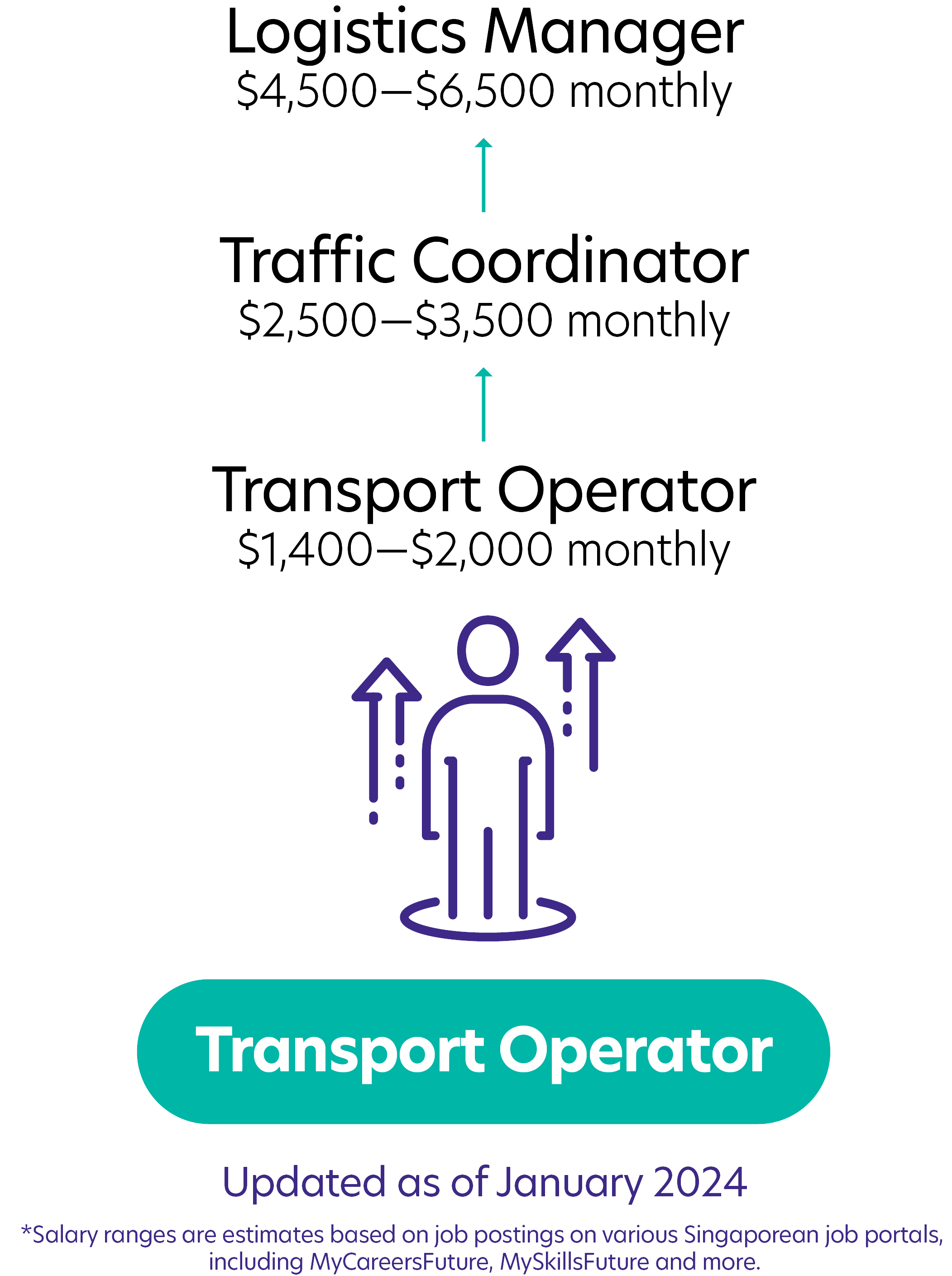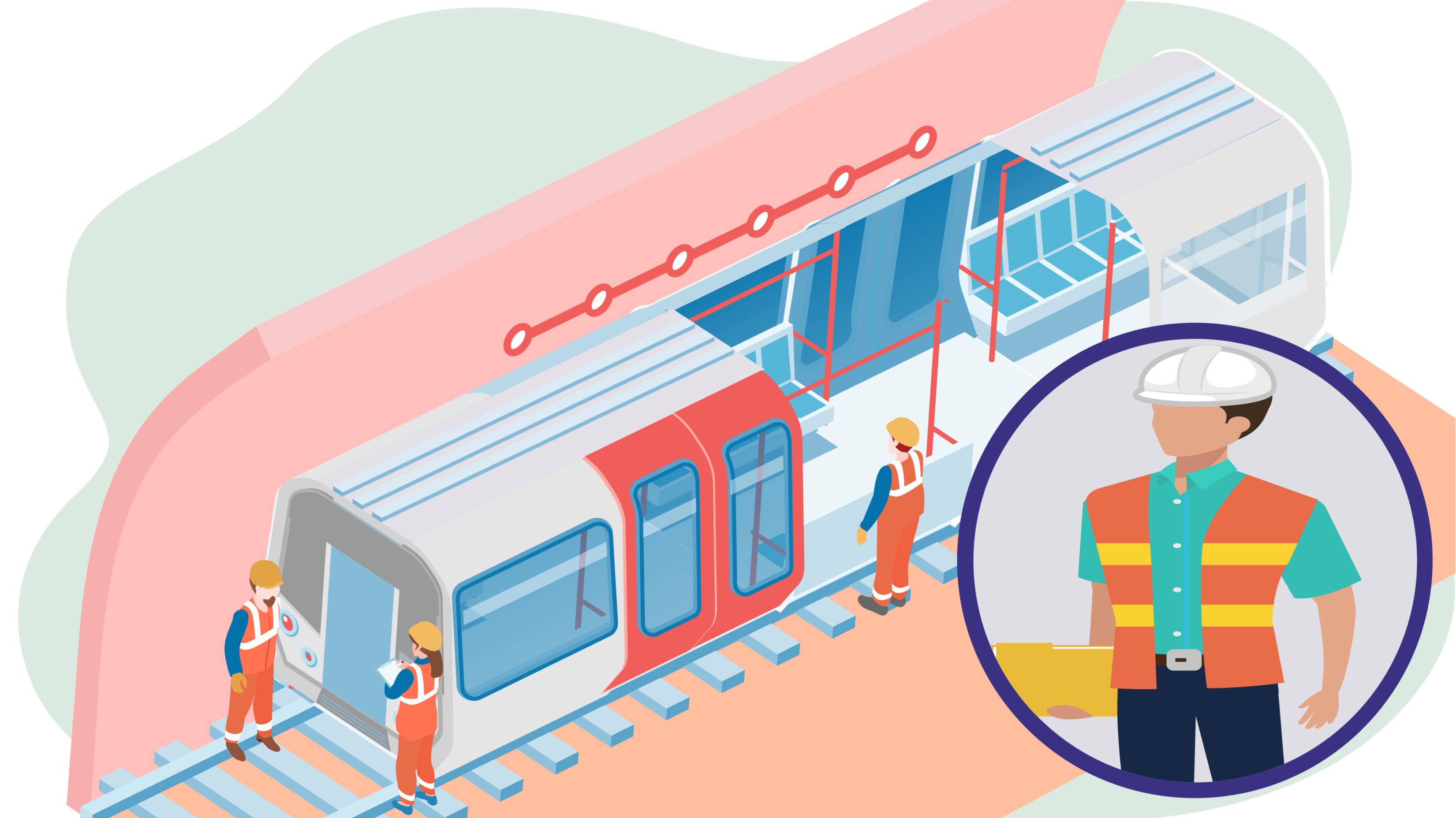
Transport Operators oversee efficient and punctual delivery of goods, usually by using heavy vehicles. They comply with safety and environmental laws to promote sustainable practices in the transportation of goods.
Transport Operator Job Description
- Manage dangerous goods, including time and temperature-sensitive cargo to monitor temperature controls for perishable items during transit.
- Operate cargo lifting, including lorry, crane and rigging equipment.
- Perform delivery and pick-up operations and deliver goods to designated locations on schedule.
- Perform maintenance of transportation facilities, equipment, infrastructure and systems.
- Perform Workplace Safety & Health (WSH) activities to ensure personal compliance with requirements.
Note
Transport Operators are not limited to courier and freight industries! In the Singapore Armed Forces, there are Transport Operators as well! They manoeuvre military and heavy vehicles through different terrains, providing support across air, land and sea operations!
What you should know about Transport Operator jobs in Singapore
Nature of Work
As Transport Operators, you must ensure the safety of your load and that they are delivered in a timely manner, often working flexible hours.Key Advice
Earn more as Transport Operators by working extra shifts—pay is hourly, not monthly. Boost your earnings with more deliveries and more hours!-
Entry RequirementsEntry Requirements
- Minimally a primary education with PSLE or equivalent.
- For driving roles, a valid driving licence appropriate for the vehicle type (e.g., Class 3/4 for heavy vehicles) is necessary, and companies may require specific certifications or training related to Logistics operations, safety, and compliance.
- For more specific roles and higher positions within the Logistics sector, additional qualifications, experience, and skills might be required, including secondary education, vocational training, or even tertiary education for managerial roles.
-
Possible PathwayPossible Pathway

Skills you need to pursue a Transport Operator career in Singapore
Familiar with Routes
Possesses knowledge of local and regional travel paths for the most efficient way to travel.Class 3 and/or 4 Vehicle Licence
Fully licensed and qualified to operate light or heavy vehicles.Physical Fitness
Capable of handling physically demanding tasks along with extended working hours.Communication
Proficiency in effectively conveying and understanding information while dealing with customers.Attention to Detail
Able to be meticulous with package details and can focus keenly on specifics to ensure timely delivery.Flexibility
Shows adaptability to constantly changing schedules and routes as required.Related Job Roles
Explore Other Programmes
Browse AllYou have bookmarked your first item!
Find it in My Discoveries with insights on your interests!









